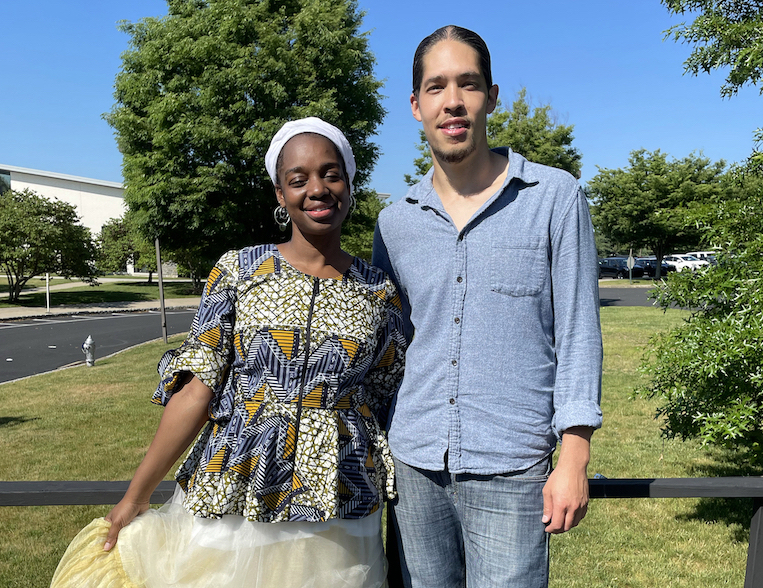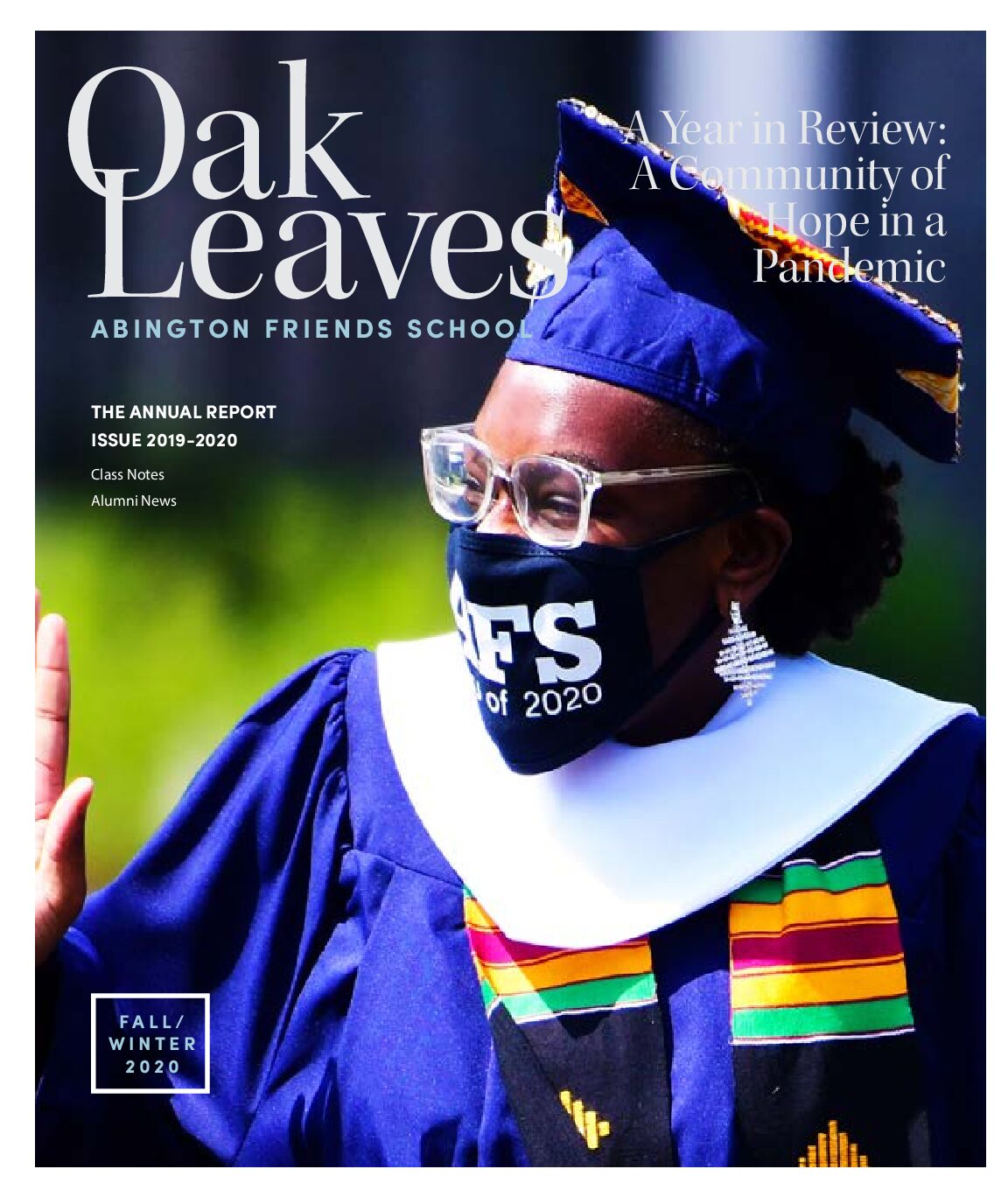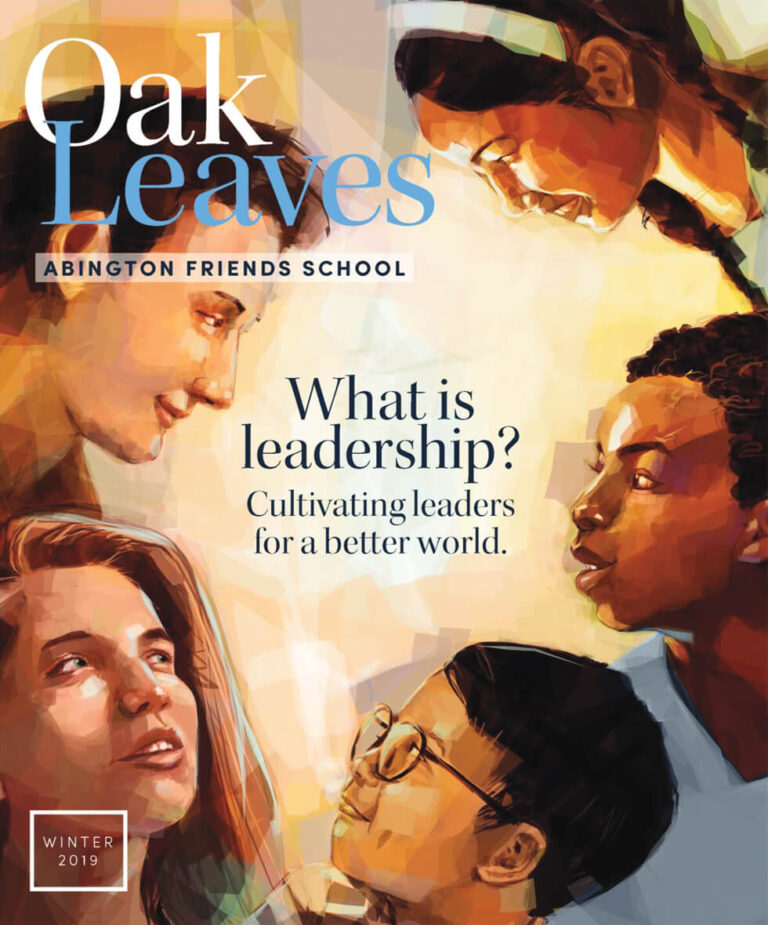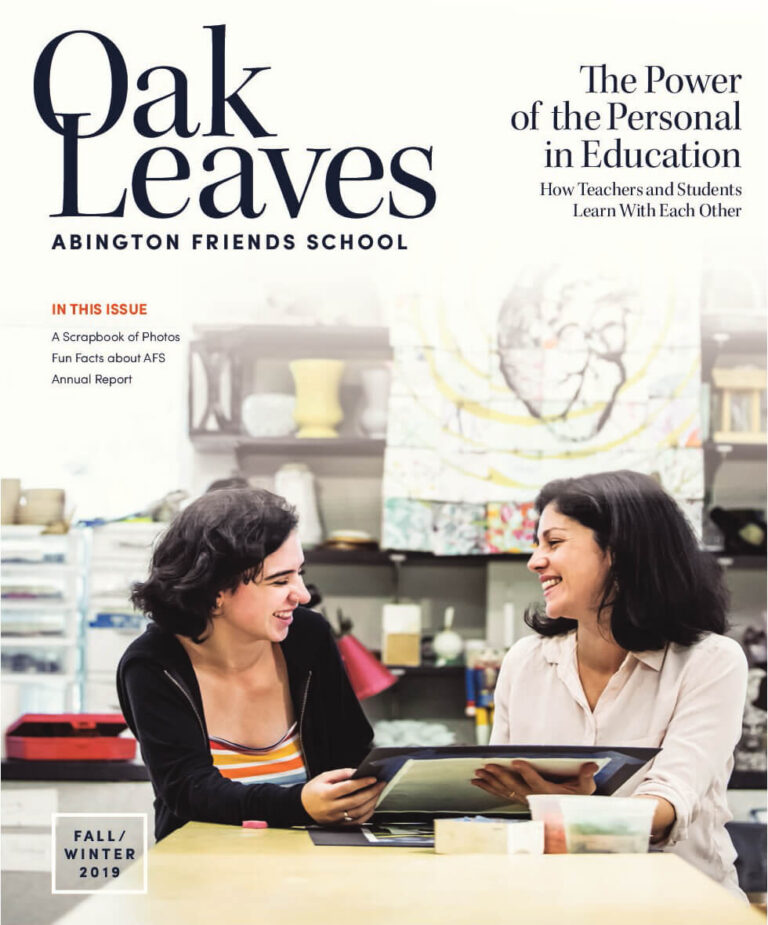Scrapbook
Artists in Residence Bring Beautiful Rhythm to Lower School

In the Lower School, movement, music and dance are essential in children’s understanding of the world of music. In 2020, Lower School Director Andrea Emmons and Head of School Rich Nourie met with AFS parents Lela Jones and Alex Shaw P ’34 to discuss their musical expertise and the idea for an artist in residency program. The proposed program was designed to lift up the beauty and power of Black and African musical, dance and cultural traditions. When the pandemic hit the Pennsylvania area, there was much thought around how to bring more music to younger students safely, so Andrea worked with Lela and Alex to reimagine the program to launch virtually, over Zoom, in a time when this work is particularly relevant and needed. From there, The Rhythmic Body and World of Percussion truly came to life at AFS in the winter of 2020.
“We certainly believe deeply that our work can enrich the lived experiences of the students and the faculty,” says Alex. “Lela and I also believe deeply in sharing this cultural knowledge in this sort of orientation with young people in ways that we did not have access to when we were young people.”
Andrea spoke of the skill that Alex and Lela have in engaging children in this meaningful program saying, “Alex and Lela are amazing teachers. They are sharing movement, music, dance and rhythm grounded in the Black and African diaspora. Students are so connected to the lessons and feel that connection at their core. Alex and Lela did one lesson where students listened to the rhythm of their own hearts and contemplated the music of that rhythm. It was so powerful for students to understand themselves as inherently musical beings.”
Andrea is particularly proud that the launch of this program allows the curriculum to be taught by Lela and Alex at schools beyond AFS. She envisions the program being part of Lower School for years to come. Lela spoke of why bringing The Rhythmic Body and World of Percussion to AFS made sense, saying, “It felt like AFS was the type of school and location where we could be innovative with a virtual offering for the students…there are other schools that just don’t necessarily have the resources and access to make a space like this possible.”

These spaces are crucial to offer artistic perspectives that otherwise might not be possible. Lela notes that she doesn’t see artistic and creative practice as the same thing as entertainment.
“I think that in the United States, we separate artistry from life,” she says. “When I’m talking about artistry and creative practice, I’m talking about the entire culture that lives in that work, with their lives and the entire ecosystem, that of the people, of the music, of the song, of the dance, of the way that they cook, the way that they walk through the world.”
As Alex points out, it’s easy, particularly in the performing arts or in performing cultural traditions, to get swept up in the “wow” factor of it all.
“[It’s key to] not get swept up into, you know, the glitz and glamor of these performative aspects, be it movement or music,” he says.
The funding for the artists in residency program came from the Hoyle family, whose generous gift to AFS was made in honor of their son David Hoyle ‘03, who tragically died in April 2019. Ben and Karen Hoyle happily joined a virtual session with students and teachers last month, and shared with the group, “Our son David worked a lot with young children, so we know our gift is being used in such an appropriate way to honor his memory.”
Alex and Lela work with each Lower School grade group individually, allowing for students to engage with them as artists and educators.
Alex reflected upon what he hopes children will gain from these weekly sessions saying, “This work, I think, enables people to understand themselves in a different way—understand the relationship between each other in a different way, and to perhaps realize certain potential that other kinds of spaces do not offer. So for us, we hope that this perhaps is an awakening, not just an awakening to the world around them, but also the world that’s within themselves.”
Lela adds, “[In this work] there are [healing] modalities that care for one another, care for people, care for more than just black people. And so I think it matters to keep these things vibrant and alive…and keeping black people [and blackness] alive is an important conversation to be having with the youngest of our communities, with the middle of our communities and with the oldest of our communities.”
See more Scrapbook

